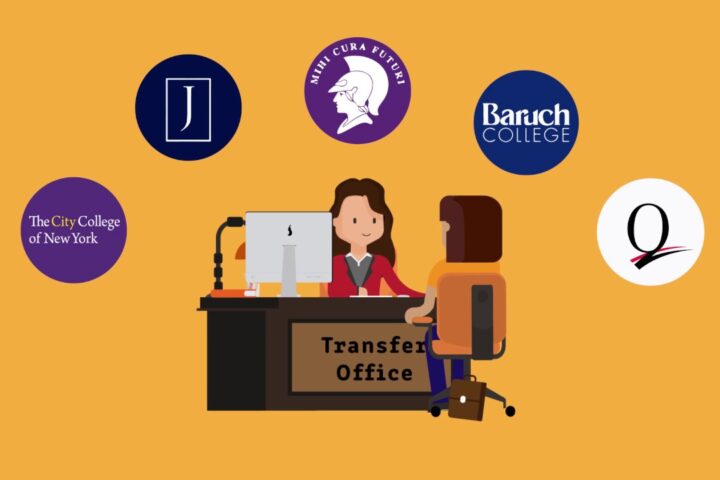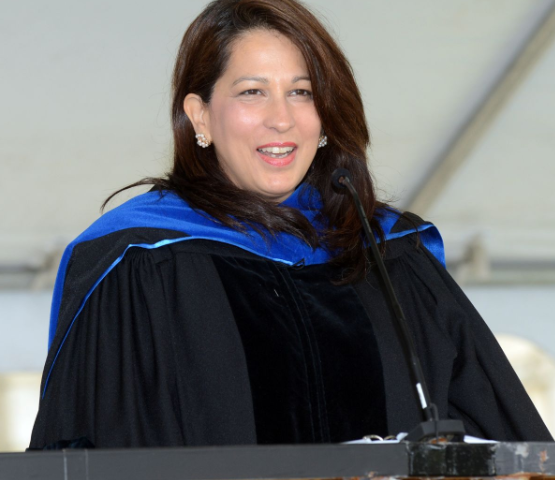According to a student survey by the National Association of Colleges and Employers 63.1 percent of paid interns receive at least one job offer as compared to 37 percent of unpaid interns.
Those unpaid interns don’t fare much better than the 35 percent of students without an internship that get offered at least one job.
Vernessa Joseph, 25, a paid intern at Queensborough Community College’s technology department, believes that although unpaid interns still get experience and education, they are disadvantaged if it doesn’t lead to a position.
“If nothing is coming your way from all of that experience, if no one is going to look at it and say ‘oh, I can hire this person because they’ve done this and that,’ then it’s not really worth it,” she said.
The Department of Labor has created guidelines that lawful unpaid internships must follow. The criteria states that the internship — despite including actual operation of the facilities of the employer — is similar to training that would be given in an educational environment, is for the benefit of the intern, the intern does not displace regular employees but works under close supervision of existing staff, the employer that provides the training derives no immediate advantage from the activities of the intern and on occasion its operations may actually be impeded, the intern is not necessarily entitled to a job at the conclusion of the internship and the employer and the intern understand that the intern is not entitled to wages for the time spent in the internship.
If the employer abides by the criteria, then an employment relationship does not exist under the Fair Labor Standards Act and the intern is not able to receive minimum and overtime wages. Controversy has risen concerning the value of unpaid internships, leaving the debate of whether unpaid internships are fair at all.
In October 2011, Eric Glatt, a production intern, and Alexander Footman, an accounting intern, filed a lawsuit against FOX Studios. While working on the set of “Black Swan,” they received neither pay nor college credit, although they worked 40 to 50 hours a week.
A judge ruled that those interns were considered employees and should have been paid.
Whether or not an intern gets paid may also determine their motivation to stick around. Joseph claims that she certainly feels motivated when she gets paid.
“When I’m there and I’m working, I’m like oh okay, every hour that passes I’m getting something for it,” Joseph said.
She believes that if an unpaid intern receives nothing at the end of the day and recognizes that the odds are against them in finding a job, they may run out of reasons to continue the internship.
Lincoln Dulaurier, 39, a senior at Queens College, works full-time as a pharmaceutical manufacturer and technician at Novartis, a health care manufacturing company.
He states that the interns at his company are often given more work than the employees. “After we trained them up, we just sat back and watched them work but that was [Novartis] way of recruiting people and eventually [the interns] got their pay.”
Dulaurier thinks it depends whether or not internships are worth it, saying “In certain companies, it’s worth it. Fiserv is a Fortune 500 company, so I think that the quality of the company will go through with the pay, but at a mom and pop shop, you might learn the overall process of something like that but they’re going to take full advantage of being an intern.”
Ricky Zhu, 25, is an unpaid intern at City College. Fresh out of college with a bachelor’s degree in biology, Zhu realized his job outlook wasn’t looking too great.
“I decided to reach out to professors in a number of nearby colleges. I asked them if I could work in their labs to gain experience so that I could be able to say ‘six months of experience at etc., performing etc. procedure’ on my resume,” Zhu said.
He eventually got an unpaid internship with Amy Berkov, a CCNY professor. A year later, he is still unemployed. Working at Flushing Library to keep himself afloat, Zhu decided that more schooling was his best option. He used his internship experience to apply to grad school and was accepted.
“So, in a sense, my internship at the Berkov lab was initially supposed to be for buffing up my resume, but ended up being the icing on the cake for my grad school application,” Zhu said.
He believes that his experience as an unpaid intern was extremely worthwhile.
“It showed me how much I didn’t know about biology. How incomplete my knowledge was after undergraduate graduation,” he said. “An internship hones your value and bolsters your worth.”













